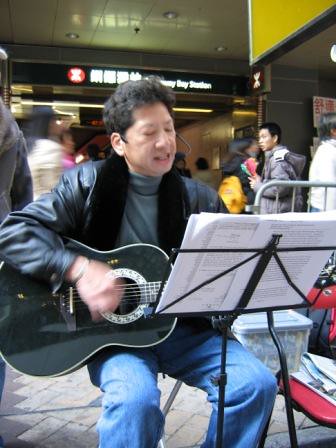
To most western political observers, the Beijing administration is a conundrum. Is it committed to bringing universal suffrage to Hong Kong and ensure there will be long term stability and prosperity in Hong Kong? Or is it more committed to maintaining a close control over the political development of Hong Kong? If Beijing, by a decision made by the Standing Committee of National People’s Congress in 2007, had already announced a time table within which universal suffrage was to be introduced to Hong Kong, why is it seemingly opposed to laying down a road map as to how Hong Kong would gradually move towards that target as demanded by the people of Hong Kong?
On the other hand, these same observers are no less perplexed by the behaviour of the Pan Democrats in Hong Kong. If they truly understand any political reform must require the participation of Beijing why should they try to do their best to antagonized Beijing? Why couldn’t they attempt to work with, instead of work against, Beijing?
The answers to these questions lie with the inexplicable fact that Beijing has traditionally always refused to talk to the Pan Democrats in Hong Kong. Some reason there is a historical background to this; that this is a legacy of June 4th. But such reason cannot stand up to scrutiny: what about those Pan Democrats who are not openly opposed to Beijing? More importantly, if even Taiwan can establish a working relationship with Beijing, why can’t the Pan Democrats? It is not as if this is due to a lack of trying on the part of the Pan Democrats. I, for one, have repeatedly called for an open dialogue with Beijing to talk about the political future of Hong Kong. But these calls seem to have fallen onto deaf ears. Beijing either is not listening or can’t hear.
So what is the prognosis for the political future of Hong Kong? The verdict is the patient is dying for want of medication. Some Pan Democrats decided enough is enough and resorted to more confrontational tactics to, as it were, “force the Issue”. Others felt there should be one last try. They are getting desperate. On the one hand, they shared the anguish and impatience of all of Hong Kong. On the other hand, they want to make it work one last time and thus the Alliance for Universal Suffrage (I shall call them “Alliance” for short) was born. The Alliance is a reiteration of the determination of the Pan Democrats to break the current impasse. Some think the Alliance is bending too much in seeking an open dialogue with Beijing. They have misunderstood the emphasis of the Alliance. The Alliance is not just seeking dialogue with Beijing but all those who are opposed to universal suffrage. The Alliance is fully committed to universal suffrage and is determined to wear down the resistance of all such people. It may not succeed but at least it should not fail for want of trying.
But this is literally a last attempt. The community already felt that the Pan Democrats were undeniably divided into the “Referendum Camp” and the “Moderates Camp”. Another failure in our political reform will make everyone including Beijing heavy losers. But who will be the bigger loser? The people of Hong Kong will undoubtedly be a leading candidate. The Moderates will be the next serious contender. They will certainly lose favour with the voters in Hong Kong. This is because the community will perceive rational discussion will yield no result with Beijing. If so, is this for Beijing? Few people think so. Putting aside the possible adverse reaction from the international community, the so called “deep rooted conflict” in Hong Kong will be no nearer to any solution; the long term stability and prosperity in Hong Kong will not only continue to be threatened but will more likely than not, go from bad to worse. Most important of all, the political landscape in Hong Kong will be forever changed. People in Hong Kong, particularly the younger generation, will be forced to move towards more radical political parties like the League of Social Democrats and Beijing will find it more difficult to deal with them in Hong Kong. There will be even more protests and confrontation. It may be that that is not the uppermost concern in the mind of our leaders in Beijing, but no one believes it is in the interest of China to have a rebellious Hong Kong at its door.
I believe no one, including Beijing, would like to see a continuous fight between Beijing and Hong Kong on the issue of political reform. In this respect, the Alliance is the best alliance Beijing can have in the quest for long term stability and prosperity in Hong Kong. As John Lennon once said, “All we are saying, is give peace a chance!” What have we got to lose?









